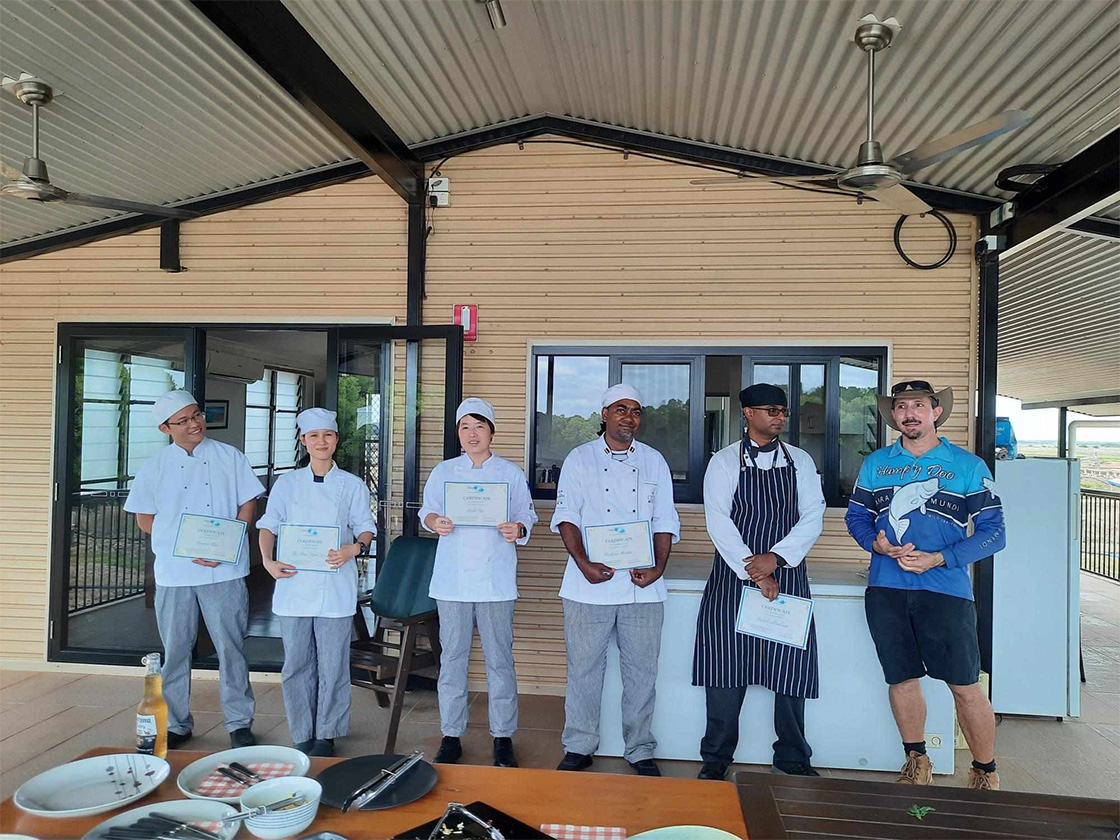A Unique Culinary Education Journey
First and foremost, in a unique blend of culinary education and sustainable aquaculture, the Australian Institute of Technical Chefs (AITC) recently orchestrated an extraordinary hands-on experience at Australia’s largest barramundi farm. Led by TChef Yakob Abraham, AITC’s Northern Territory representative and educator at the Darwin Institute, a group of passionate chefs ventured into the remote wilderness of Humpty Doo to discover the art and science of premium barramundi farming.
Inside Australia's Largest Barramundi Farm
Moreover, the exclusive tour, hosted by Humpty Doo Barramundi’s CEO Dan Richards, offered participants an intimate look at one of Australia’s most successful aquaculture operations. The farm, renowned for its commitment to sustainability, showcases how traditional fishing practices merge with modern aquaculture technology.
Additionally, Richards, whose background in environmental science has shaped the farm’s ecological approach, shared insights into their innovative saltwater wetland water treatment and reuse systems that minimise environmental impact.
Interactive Farm-to-Plate Experience
What makes this unique is its interactive nature. Participants didn’t just observe – they became part of the story, fishing in the massive barramundi ponds and experiencing firsthand the connection between sustainable farming practices and the premium products that reach their kitchens.
Subsequently, this hands-on approach culminated in a unique lunch where chefs prepared and enjoyed their own caught barramundi, creating an unmatched paddock-to-plate experience.
Professional Insights
This initiative represents exactly what AITC stands for – bridging the gap between technical culinary expertise and sustainable food production," said TChef Yakob Abraham. "Understanding where our produce comes from and how it's sustainably farmed is crucial for modern chefs.
Environmental Stewardship in Action
Furthermore, the tour highlighted Humpty Doo Barramundi’s dedication to environmental stewardship and their role in advancing Australia’s aquaculture industry. Their practices, including minimal environmental impact strategies and commitment to local employment, demonstrate how commercial success can align with ecological responsibility.
Beyond the Farm Tour
In conclusion, for the participating chefs, this experience went beyond a simple farm tour. Indeed, it provided valuable insights into sustainable aquaculture, helping them make more informed decisions about seafood sourcing and preparation in their professional kitchens. This knowledge transfer between producers and culinary professionals exemplifies the kind of industry collaboration that AITC actively promotes.


